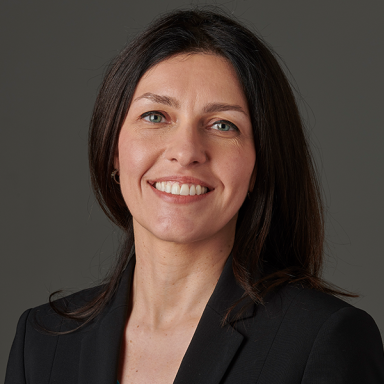Across the industry, investors and advisors alike are signaling that the next great differentiator isn’t simply investment performance, but personalization and tax efficiency—powered by technology.
According to recent Cerulli research, nearly eight in ten affluent investors (78%) say it’s important that their accounts are customized, and seven in ten affluent investors (69%) value providers who help reduce their tax bill. Advisors are responding in kind: nearly half (47%) now offer tax planning services, and that number climbs to 53% among those serving clients with more than $5 million in assets.1
These findings confirm what we’ve long believed: the future of wealth management is personalized, tax-aware, and technology-enabled at scale. The firms that can deliver these capabilities holistically and help advisors implement them seamlessly may be the ones best positioned to grow in the years ahead.
Personalization is becoming the new baseline
Personalization is no longer a luxury for the ultra-wealthy—it’s become the baseline expectation for investors at every level. Just as clients now expect tailored recommendations from Amazon or Netflix, they increasingly want portfolios that reflect their unique goals, values, and circumstances.
Cerulli’s 2025 study finds that customization has become essential to wealth management, with home offices, asset managers, and technology providers all investing in platforms that deliver household-level oversight. High-net-worth households, which now hold $20.6 trillion in advisor-managed assets (up from $10.8 trillion a decade ago), are setting the pace.1 Wealth managers are working to extend these capabilities to the mass-affluent market as well.
For advisors, this evolution is about more than product access. It’s about delivering advice that feels personal and relevant. That means leveraging data, technology, and investment tools to integrate held-away assets, align portfolios with life goals, and demonstrate value through measurable, individualized outcomes.
Clients are bringing taxes up in a way they haven’t historically,” one advisor told Cerulli. “When you talk about saving money on taxes, 100 out of 100 people love you.1
Personalization isn’t just about customization. It’s often about connection. And that connection increasingly centers on taxes.
Tax-aware personalization is the heart of modern advice
Among all forms of customization, tax management has emerged as the clearest opportunity for advisors to add measurable, tangible value. Taxes are often the single largest expense investors face, and Cerulli’s research shows that tax minimization and wealth preservation are now the most essential investment objectives for high-net-worth practices (73% each).1
Nearly every step of the client journey now carries potential for tax-aware optimization, from onboarding to portfolio management to distribution:
- Transition and onboarding: Advisors are using technology to analyze embedded gains, set annual tax budgets, and minimize the cost of portfolio transitions.
- Active management: Next-generation overlay tools automate tax-loss harvesting, rebalance across multiple accounts, and report tax savings to help advisors demonstrate value in real dollars.
- Distribution: As clients enter retirement, “tax-smart withdrawal” tools support sequencing strategies that can help extend portfolio longevity and improve after-tax outcomes.
Cerulli finds that 82% of managed account sponsors are prioritizing improved tax management capabilities, underscoring just how central this has become to the advisor value proposition.1
Tax-aware personalization can strengthen relationships. When clients see the impact of proactive tax management, it can reframe the advisor’s value from investment performance to holistic financial stewardship. In an environment where fees are under constant scrutiny, that differentiation can be valuable.
Technology is enabling personalization at scale
If personalization and tax management define what the next era of wealth management will be, technology defines how.
Historically, the complexity of household-level management made scalable personalization nearly impossible. Today’s tech stacks are closing that gap. Advisors can now orchestrate unified managed household (UMH) experiences—aligning accounts, optimizing asset location, and reporting on tax outcomes through a single digital ecosystem.
Cerulli finds that wealth managers across the spectrum, from trillion-dollar enterprises to growth-oriented boutiques, are moving toward integrated technology partnerships to enable this.1
The key to success, Cerulli emphasizes, lies in ease of use, integration, and unified experiences. Solutions must be intuitive for advisors, seamlessly connected across systems, and capable of delivering consistent, client-centric outcomes at scale.1
Technology is what turns “customized at scale” from an aspiration into an operational reality. It’s what allows advisors to focus more time on planning, relationships, and value, and less time navigating fragmented systems or manual processes.
The road ahead
The future of wealth management is not one-size-fits-all. It’s personalized, tax-aware, and powered by technology that enables advisors to deliver these outcomes efficiently and at scale.
As Cerulli’s data shows, both investors and advisors are demanding more tailored, tax-smart solutions. Firms that can meet that demand will define the next generation of advisory leadership. It’s time to ensure your practice and your tech stack are ready to deliver personalization and tax-aware value at scale.
See how providing holistic, personalized tax management services can be a potential win-win for you and your clients.
